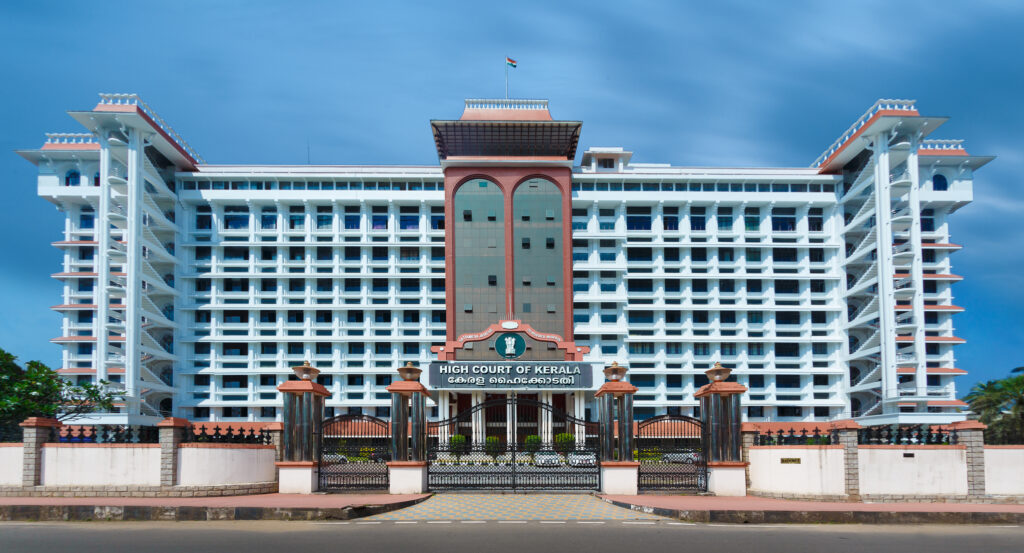The Kerala High Court stated that the authority of magistrates to handle cases cannot be removed, even if children’s courts are designated for quick trials through a notification.

The Kerala High Court ruled that a Magistrate’s authority to handle cases cannot be removed, even if Children’s Courts are designated for quicker trials. This decision came from a group of Revision Petitions that contested a shared ruling by the Additional Sessions Judge, which overturned the convictions and sent the cases back to the Trial Court for a new trial. Justice P.G. Ajithkumar noted that the Magistrate is typically the right forum for these cases. The designation of Children’s Courts was made solely for faster processing of cases involving children or child rights violations. The Court emphasized that this does not eliminate the Magistrate’s jurisdiction, but it is more appropriate for such cases to be heard by the Children’s Courts.
Advocate S. Rajeev represented the Petitioners, while Public Prosecutor Noushad K.A. represented the Respondents. The victims filed Revision Petitions against the Additional Sessions Judge’s ruling. The Trial Court’s decisions were overturned because the Children’s Court was notified under Section 25 of the Commissions for Protection of Child Rights Act, 2005 (CPCR Act) before the judgments were made. The Petitioners argued that since the trial before the Magistrate had already started and the Children’s Court was only designated for faster trials, the Appellate Court should not have overturned the Trial Court’s decisions.
The High Court observed in this case that the petitioner’s lawyer referred to Rattiram v. State of M.P. [(2012) 4 SCC 516] to support the argument that the Magistrate’s trial was valid. In that case, a special court under the Scheduled Caste and Scheduled Tribe (Prevention of Atrocities) Act, 1989 began proceedings without the case being formally committed. The argument was that the trial was invalid due to a failure to follow Section 193 of the Code. A three-judge panel of the Supreme Court reviewed differing opinions on this matter and concluded that the trial was not invalid solely because of this procedural error. This ruling does not apply directly to the current situation.
The Court also acknowledged the principles established by the Supreme Court:
1. When a special court is set up for a quick trial, mistakes or irregularities in the process that do not cause a failure of justice cannot be used to overturn the judgment.
2. If the trial was conducted by a court with proper authority, the higher court will be cautious about changing the trial court’s decision due to procedural mistakes.
3. A quick trial and fair treatment of victims, based on constitutional principles, are two key requirements in criminal cases.
4. It is the important duty of everyone involved to ensure that the criminal justice process is not delayed, which could lead to unfairness and the violation of rights for both the accused and the victim.
The Court stated that if the Trial Court’s decisions in these cases are overturned, it would lead to a new trial. This would cause significant delays, requiring the Respondent to be tried again and forcing the victims to testify once more, which goes against the principles of the Protection of Children from Sexual Offences Act, 2012 (POCSO Act). While the POCSO Act does not apply directly to these cases, the importance of a quick trial, as emphasized in the POCSO Act, should still be considered. As a result, the High Court annulled the contested Judgments, sent the Appeals back, and instructed the Sessions Judge to restore the Appeals and move forward with their resolution.
Cause Title: Shahabanath v. State of Kerala & Anr. (Neutral Citation: 2024:KER:85371)
Appearance:
Petitioners: Advocates S. Rajeev and K.K. Dheerendrakrishnan.
Respondents: Public Prosecutor Noushad K.A., Advocates P.A. Harish, and V.V. Surendran.









